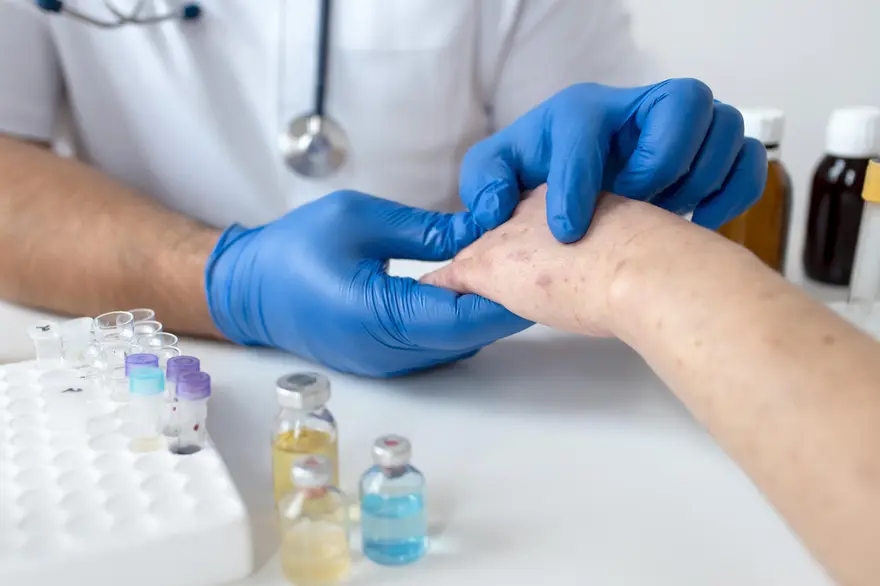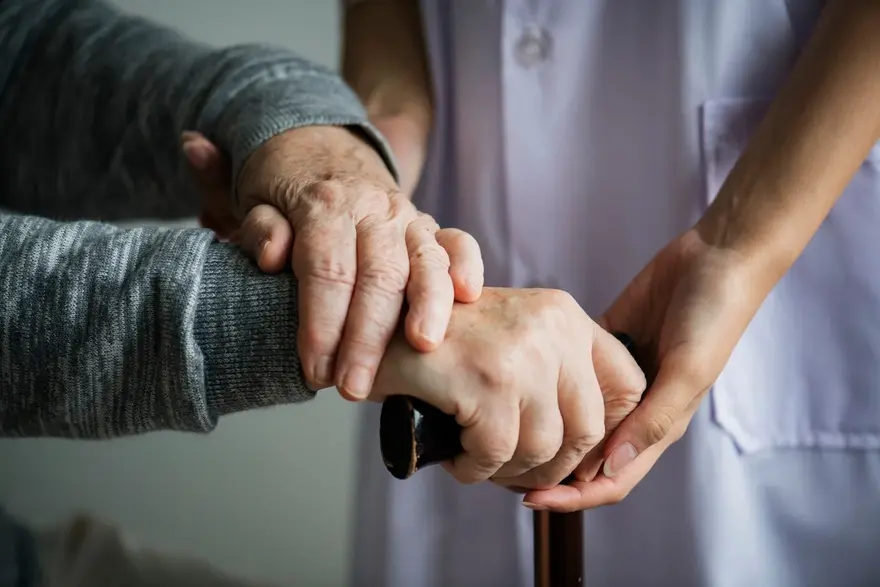Preventive Healthcare
Soft Tissue Sarcoma: Symptoms, Diagnosis, and Treatment Options
68 Views
0

Soft tissue sarcoma is a rare type of cancer that begins in the body's soft tissues, such as muscles, fat, blood vessels, nerves, and tendons. While sarcomas account for only 1% of all adult cancers, they represent about 7% of childhood cancers. With over 50 different subtypes, soft tissue sarcomas can affect people of all ages.
If you or a loved one have been diagnosed with soft tissue sarcoma, you likely have many questions and concerns. What are the types of sarcoma? What causes this cancer? How is it diagnosed and treated? In this article, we'll provide clear, helpful answers to these questions and guide you through understanding soft tissue sarcoma symptoms, risk factors, and care options.
Types of Soft Tissue Sarcoma
Sarcomas are rare cancers that develop in various tissues. Common types of sarcoma include:
- Angiosarcoma (blood vessels)
- Dermatofibrosarcoma protuberans (skin growth)
- Epithelioid sarcoma (young adults)
- Gastrointestinal stromal tumour (digestive tract)
- Kaposi sarcoma (immune-related)
Others include leiomyosarcoma (smooth muscle), liposarcoma (fat cells), malignant peripheral nerve sheath tumours (nerves), myxofibrosarcoma (limbs), rhabdomyosarcoma (children’s skeletal muscles), solitary fibrous tumour (benign or malignant), synovial sarcoma (joints), and undifferentiated pleomorphic sarcoma (various tissues).
Different types of sarcoma depend on the originating cells. Accurate diagnosis is vital for treatment, as therapies vary based on the specific sarcoma subtype.
Symptoms of Soft Tissue Sarcoma
In its early stages, a soft tissue sarcoma may not cause any symptoms. As the tumour grows, you may notice:
- A painless lump or swelling, often on an arm or leg
- Pain or discomfort as the lump presses on nerves or muscles
- A visible skin lesion or growth
- Abdominal pain if the tumor is in the stomach area
It's important to note that these soft tissue cancer symptoms can resemble those of more common conditions like injuries or benign cysts. However, sarcoma lumps tend to grow and persist rather than resolve on their own. If you notice any new or unusual growths, especially if increasing in size, promptly consult your doctor.
Causes and Risk Factors
Researchers don't yet fully understand what causes soft tissue sarcomas to develop. In most cases, these cancers are thought to arise due to random mutations or DNA changes in the body's connective tissue cells. However, certain factors are known to increase sarcoma risk, including:
- Inherited genetic syndromes like Li-Fraumeni syndrome, familial adenomatous polyposis, neurofibromatosis and retinoblastoma
- Exposure to high doses of radiation, such as from prior radiation treatment for other cancers
- Chronic lymphedema (swelling), which can occur after lymph node removal surgery
- Exposure to certain chemicals, including vinyl chloride, arsenic and dioxin
It's important to note that while these risk factors can make someone more likely to develop soft tissue sarcoma, they don't directly cause the cancer. Many people with one or more risk factors never develop sarcoma symptoms, while others with no known risk factors still get these cancers.
There is no sure way to prevent sarcomas, but you can take steps to reduce your risk by:
- Avoiding unnecessary radiation exposure
- Treating and controlling lymphedema if you have it
- Limiting exposure to chemicals linked to sarcoma
- Talking to your doctor if you have a family history of sarcoma or related genetic syndromes
If you are concerned about your sarcoma risk, don't hesitate to discuss this with your healthcare provider. They can assess your individual risk factors and recommend appropriate screening or preventive measures.
Diagnosis of Soft Tissue Sarcoma
If you notice unusual lumps, growths, or swelling that persist or grow over time, it's important to consult your doctor. To diagnose soft tissue sarcoma, your healthcare provider will likely recommend imaging tests to assess the tumour’s size, location, and extent. However, a biopsy is essential to confirm the presence of cancer cells.
Common diagnostic procedures include:
- Imaging tests such as:
- X-rays: Provide an initial view of abnormalities
- CT scans: Offer detailed cross-sectional images
- MRI scans: Help assess soft tissue involvement
- PET scans: Detect cancer spread
- Biopsy procedures to confirm sarcoma:
- Core needle biopsy: Uses a thin needle to extract a tissue sample
- Surgical biopsy: Removes a larger portion of the tumour for analysis
These tests not only confirm sarcoma but also help determine its specific type, guiding treatment decisions.
Staging and Prognosis
Once soft tissue sarcoma is diagnosed, the next step is staging the cancer to determine how far it has spread. The TNM staging system evaluates:
- Tumour size (T): Measures the size of the sarcoma
- Lymph node involvement (N): Identifies if cancer has spread to nearby lymph nodes
- Metastasis (M): Determines if the cancer has spread to distant parts of the body
Lower-stage sarcomas (stages I and II) are localised and have a better prognosis, while higher-stage sarcomas (stages III and IV) indicate more extensive spread and may require aggressive treatment.
Other factors influencing prognosis include:
- Tumour grade: How abnormal the cancer cells appear
- Tumour location: Some locations may be harder to treat
- Overall health: Affects treatment options and recovery
Your doctor will explain your specific stage and prognosis, helping you understand your treatment options.
Treatment Options for Soft Tissue Sarcoma
Soft tissue sarcoma treatment depends on factors such as tumour size, location, type, and stage. Common approaches include:
- Surgery: The primary treatment, aiming to remove the tumour with a margin of healthy tissue to prevent recurrence.
- Radiation therapy: This method will be used to shrink the tumour before surgery, and destroy remaining cancer cells after surgery.
- Chemotherapy: Uses drugs to kill cancer cells, especially for aggressive or metastatic sarcomas
- Targeted therapy: Focuses on specific cancer cell characteristics to block growth and spread
- Immunotherapy: Helps boost the body’s immune system to fight cancer in certain sarcoma types
- Clinical trials: May provide access to innovative and promising new treatments
Your medical team will create a personalised treatment plan based on your diagnosis and needs. Throughout treatment, they will monitor your progress and adjust the plan as necessary to achieve the best outcome.
Living with Soft Tissue Sarcoma
A soft tissue sarcoma diagnosis can feel overwhelming, but you are not alone. Beyond medical treatment, prioritising your emotional well-being and quality of life is essential. Educating yourself about your specific diagnosis and treatment options can help you feel more informed and empowered. Open communication with your healthcare team is also crucial—don’t hesitate to ask questions or express concerns about your treatment and recovery.
Seeking emotional support is just as important as physical care. Lean on family and friends, join a support group, or consider counseling to help navigate the emotional challenges of living with sarcoma. Maintaining a healthy lifestyle through balanced nutrition, regular exercise, and stress management techniques can also improve overall well-being.
Attending follow-up appointments is vital for monitoring recurrence and managing long-term side effects. Remember, every cancer journey is unique. Take things one day at a time, celebrate small victories, and focus on what you can control.
Prevention and Early Detection
While there are no surefire ways to prevent soft tissue sarcoma, you can take steps to reduce your risk and catch the disease early. Be aware of your body and promptly report any unusual lumps, bumps or swelling to your doctor. Certain inherited genetic disorders and exposure to high doses of radiation may increase sarcoma risk, so share any relevant family or medical history with your healthcare provider. Regular check-ups and age-appropriate cancer screenings can also help detect sarcomas and other cancers at their earliest, most treatable stages. If you have concerns about your sarcoma risk or symptoms, don't hesitate to discuss them with your doctor.
Research and Future Directions
Scientists are continually exploring the genetic and molecular factors that contribute to soft tissue sarcoma, aiming to develop more targeted and personalised therapies. Advances in genetic sequencing now allow researchers to analyze sarcoma tumors in greater detail, identifying key mutations that drive cancer growth. This deeper understanding paves the way for precision medicine, where treatments are tailored to a tumour’s unique characteristics.
Immunotherapy, which harnesses the body’s immune system to fight cancer, also shows promise for certain sarcoma subtypes. Researchers are investigating new ways to enhance the immune response, potentially improving treatment outcomes. Additionally, targeted therapies designed to block specific cancer-driving signals are being tested, offering hope for more effective and less toxic treatment options.
Ongoing clinical trials play a vital role in bringing these innovations from the lab to patients. As our understanding of sarcoma biology expands, experts remain hopeful that survival rates and treatment options will continue to improve.























 WhatsApp
WhatsApp